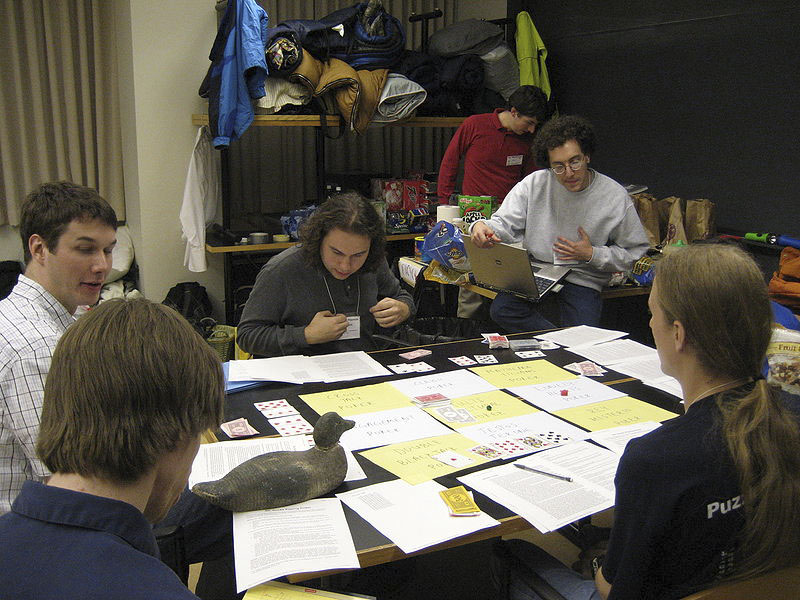
Grade school has taught us valuable skills for us to obtain information faster and reiterate what we know on a test. These skills were ingrained in us as children so that we could take on the next level of education with a little more ease. After continuous memorization, papers and exams, the idea of progressing to the next level has become a routine and set goal for each year of our education.
However, there comes a time when we are released from this dome of continuous memorization of scholastic material and sent off to utilize the skills that we were taught and had permeated in our minds. The goals we had in school seem to disappear as the sudden reality creeps over our heads that the information we learned has no effect on society if we don’t know how to utilize it.
Let’s recall the mission statement of the University of California with its promise to provide “education for professional careers, grounded in understanding of relevant sciences, literature and research methods, (which) provides individuals with the tools to continue intellectual development over a lifetime and to contribute to the needs of a changing society.”
Funnily enough, most students seem to not really see the implementation of this mission statement as they quickly try to absorb as much information as they can in 10 weeks to reach the next set of units in order to graduate. The childhood mentality is encroaching upon us again as we ask ourselves why we need this class that we are taking. Or even why we sometimes need to learn subjects that have nothing to do with our major.
The difficulty with this may even possibly lie with the fact that professors aren’t even required to have an education in teaching education. This isn’t a call for professors to revisit education themselves but to integrate their own research skills into the curriculum. The UC system prides itself on the advanced research that takes place to provide a better society in various fields of health, intellect and technology. So it’s only practical the more professors, beyond the subjects of science, integrate their research skills within the curriculum of the class.
In a Stanford University design class, students are encouraged to learn beyond the book and actually intertwine common knowledge, daily observations and simple solutions to everyday problems. Students continuously observe an everyday issue that people may face in various environments such as a ramen restaurant or even a barber shop. For instance, in the ramen restaurant a student observed the way in which individuals ate ramen and from there created a straw which enabled customers to eat their ramen simultaneously with the broth. This is an example of students designing a product to simplify the lifestyle of that environment which usually is followed by the student actually starting up a company with their new invention.
The idea is brilliant: Create solutions for small everyday problems. However, this isn’t the entire goal of the class. The drive to make life simpler by modifying daily tasks provides the stepping stone for students to obtain the confidence needed in order to tackle larger issues that impede the world, ranging from the shortage of organ donors to numerous amount of infant deaths.
UC Riverside should implement classes like this not only to teach students direct ways to start organizations or companies that can create jobs to improve living conditions, but it can create an innovative way of creating a pathway to help with larger societal issues. Classes like this can bring in a different audience to UC Riverside and, in turn, create a learning environment that actually follows through with the mission of the UC educational system.
If structured similarly to the Stanford design class, students can obtain the practical skills of research and the ability to use the information that a student learns in class in the real world. Students would be graduating with the knowledge of how to begin a project and improve from that point.
The class would fundamentally use the research skills that professors are familiar with to guide students in their own simple projects. Ultimately, classes could be a means to find the reason as to why each class is vital for their graduation. The class would ultimately teach skills that would allow us to take the knowledge we have accumulated over the years and create change within our society. The UC mission statement, after all, claims that it provides a “unique environment in which leading scholars and promising students strive together to expand fundamental knowledge of human nature, society, and the natural world.”
But this elicits a question: Do 10 weeks of midterms and lectures actually create the drive to “expand fundamental knowledge” of these areas?
One of the founders of Stanford, David Kelley states: “An important element of the school is having students start small,” to gain what he refers to as “creative confidence” after each successful project, moving toward larger world problems that seem impenetrable. The proposed class does not have to deal with just design, but it could provide the push needed to allow students to learn more about their effect in the world and the vitality of the information being taught in class.
It’s difficult to tailor each class this way, but what makes the process easier is that professors themselves can offer research projects that can be used as models for the students. UC professors should be required to have students perform research projects in courses in every college so the skills of application are practiced.
This proposed class would be a form of encouragement for professors to teach the skills they are so familiar in using to all subjects. This is tremendous leap forward as far as promoting students to understand that they are capable of tackling and solving these larger issues, and maybe this method of practicality is something that can trickle down into other disciplines — and other school levels.








